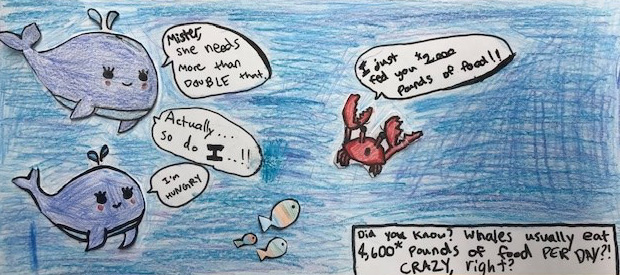Collaborating for Wildlife and Plants: ESA at 50
In celebration of the 2023 50th Anniversary of the Endangered Species Act, we’re launching a new gallery – on May 19th, Endangered Species Day 2023 – of creative works created by groups of two or more K-12 youth. You can view all of the submitted works at our Flickr gallery, Collaborating for Wildlife and Plants: Endangered Species Act at 50 . These fantastic, multi-media works demonstrate the theme of celebrating the successes and value of the Endangered Species Act. The gallery of works include images showing at least one US, US Territory, or US Territorial Waters native or migratory plant or animal species. The species shown are either Endangered Species Act listed as Threatened or Endangered, species Proposed for listing, or species Delisted from the Endangered Species Act. Thank you to all of the youth artists who participated in the Collaborating for Wildlife and Plants: ESA at 50 Call to Artists!
COLLABORATIVE ART GALLERY
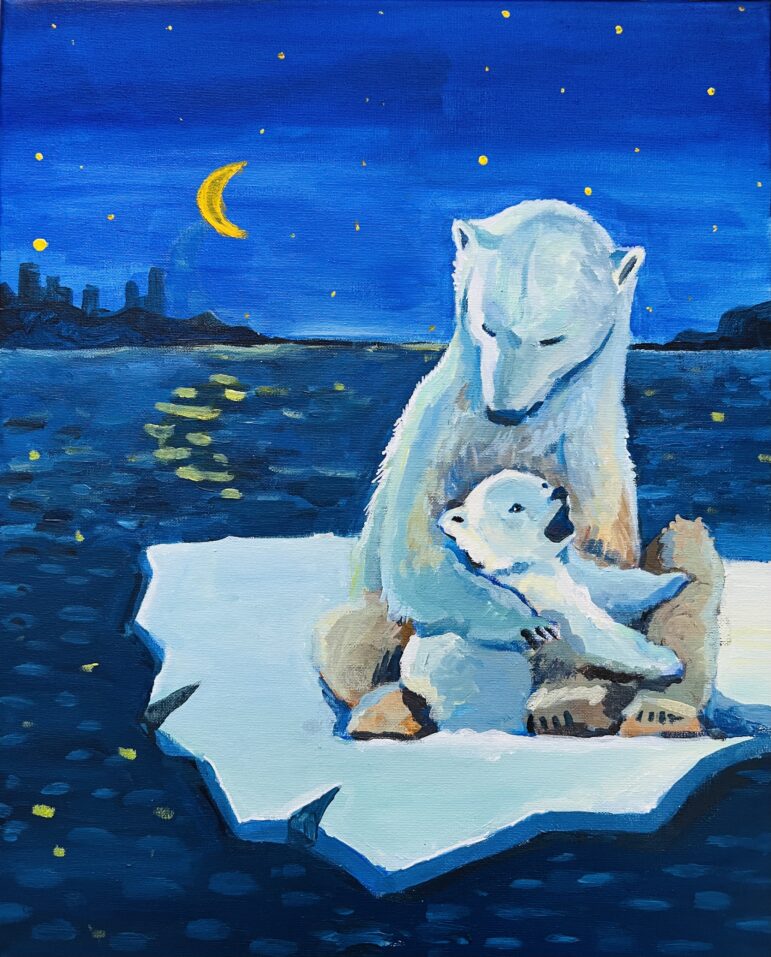
ARTISTS STATEMENT: Many changes are happening to our planet, including global warming, which is slowly destroying the habitats of many species. By this painting, my idea was to specifically show how the habitats of polar bears were being destroyed. Hopefully when people see it, it helps to remind them we need to do something.
My younger brother loves polar bears so much that he cries when he read a story about melting icebergs in Arctic ocean. Surprisingly, there are fewer and fewer polar bears. Can you believe it? They are cute and fluffy and all kids love them so much.
We decided to work on the drawing together, which helps us inspire each other. His tears turn into baby bears. They are eager to have a family and playground forever and I believe they deserve it.
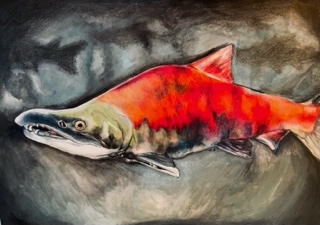
ARTISTS STATEMENT: We are fortunate to live and go to school in Issaquah, WA which is a final destination and spawning ground of the majestic Puget Sound Chinook. Every autumn we can walk to Issaquah Creek and witness the crimson Chinook try to make it battered and determined to make it home.
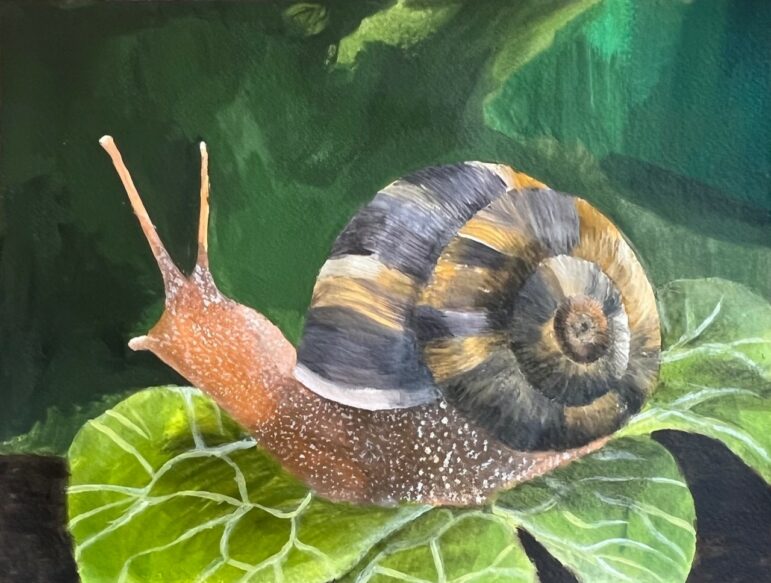
ARTISTS STATEMENT: The endangered species we submitted artwork for was a Kanab Ambersnail, which is a type of snail that is hermaphroditic. We chose this species because it shows the beauty in small details, such as the spots on the body and the textures of the shell. We want people to understand that even though these snails are small and only live for around a year to two years, they still make a great impact on our earth.
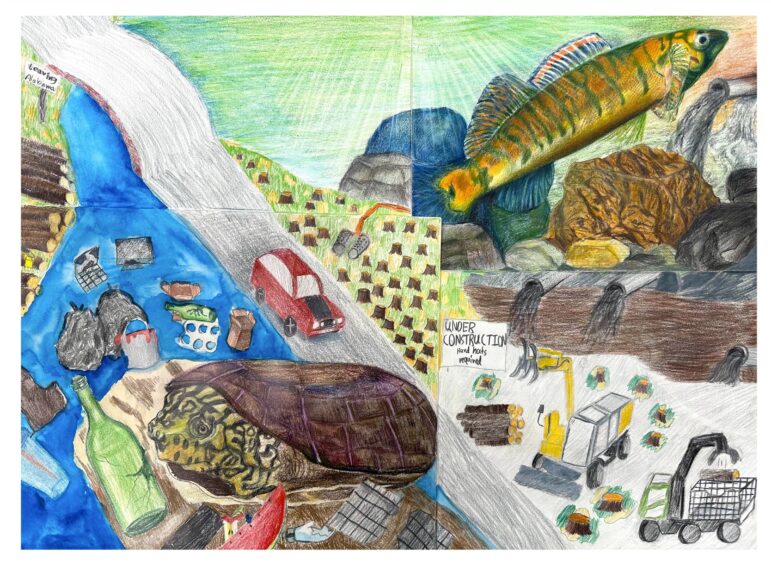
ARTISTS STATEMENT: We want to raise awareness to endangered species living in water. We want people to know that the Flattened Musk Turtle and the Roanoke Logperch both face extinction as a result of human damage to the environment, such as pollution and habitat loss.
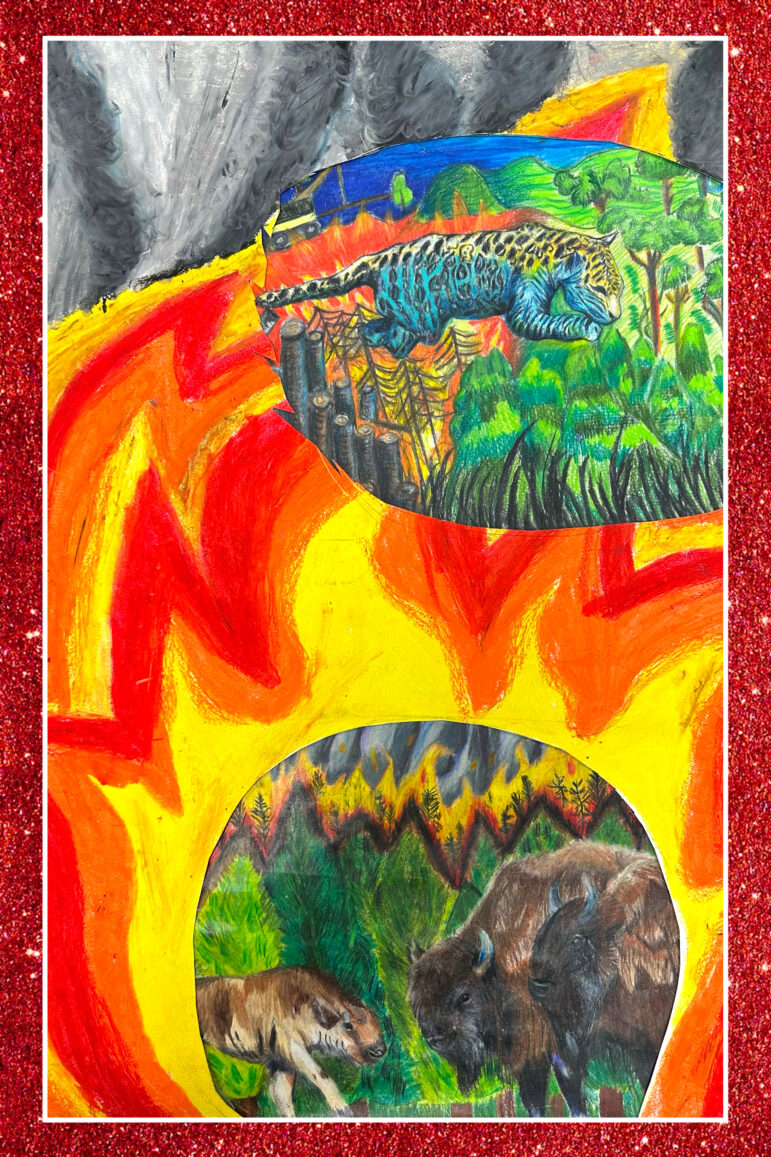
ARTISTS STATEMENT: Jaguar and wood basin are listed as threatened species due to the over-hunting, habitat destruction and wildfires. They play crucial roles in maintaining a balanced food web and supporting a fully functioning ecosystem. We should take the responsibility to save them!
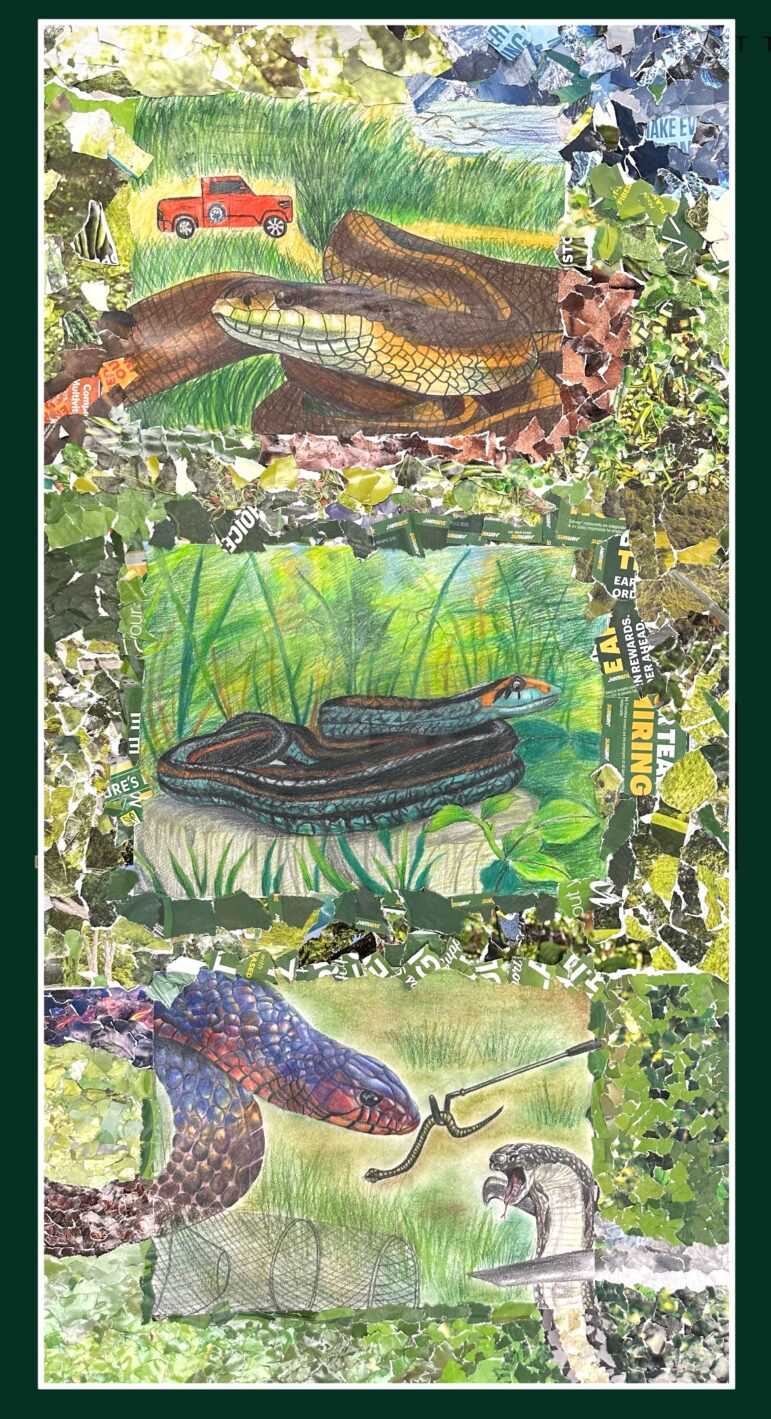
ARTISTS STATEMENT: There are many species of snakes that are either threatened or endangered. The main reasons are their habitats have been turned into urban spaces and they have been captured for animal trade. Since humans are the cause of these threats and endangerment, it should be our responsibility to save these species. Species in this image: Giant Garter Snake, San Francisco Garter Snake, Eastern Indigo Snake (all belong to Colubridae family)
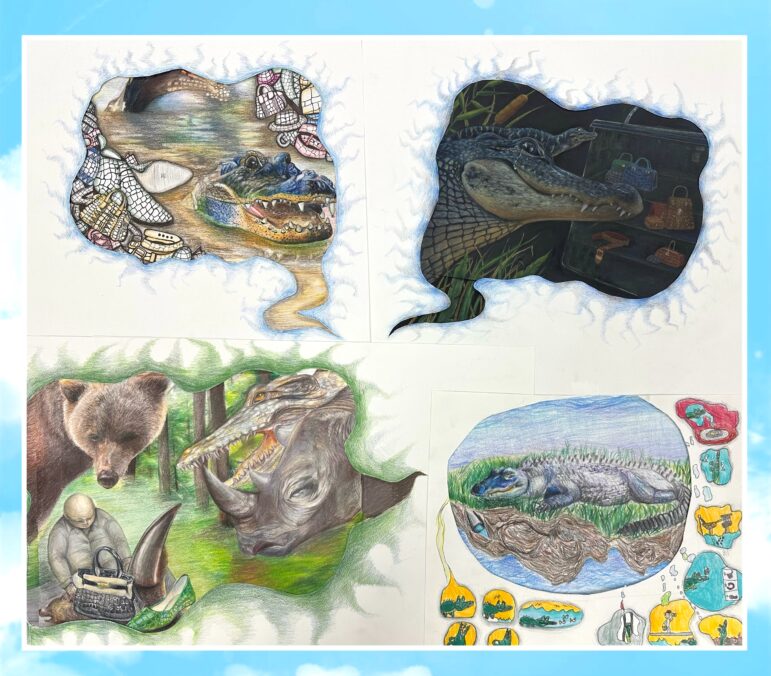
ARTISTS STATEMENT Alligators, Rhinos and Bears play crucial roles in maintaining the ecosystem. Because of their skins which can be made into beautiful purses, shoes, hats, etc., people have been poaching them. This made their populations decrease and making them endangered. The more endangered they are, the more they get poached and thus the skins become more valuable which makes people want to poach them more for money. We can stop the endangerment by not buying products made from endangered animal skins as well as bringing awareness to the public

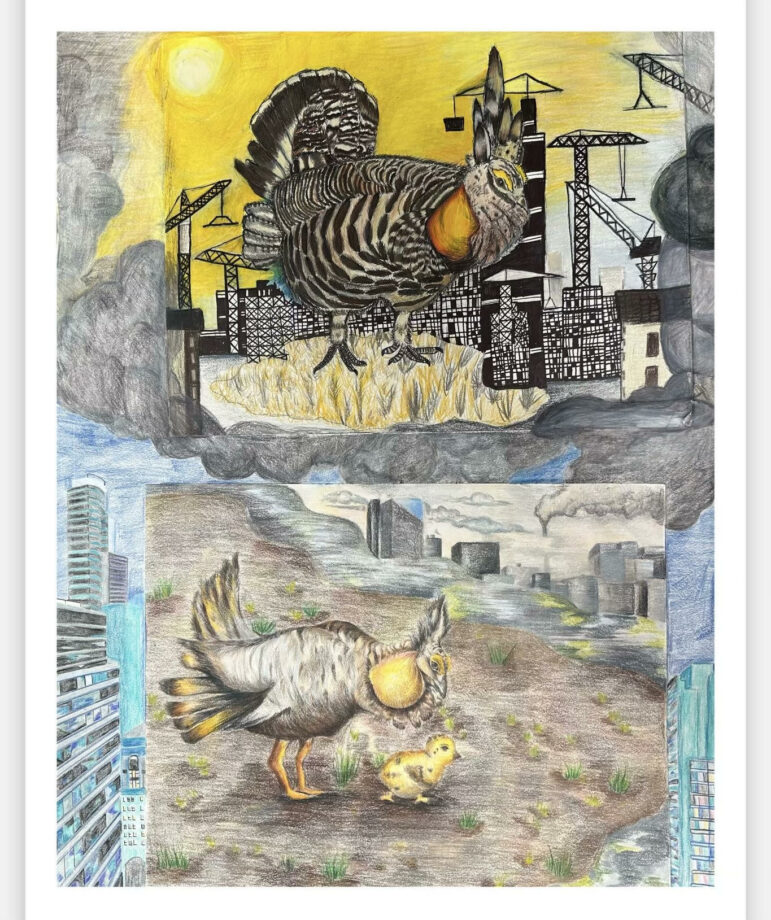
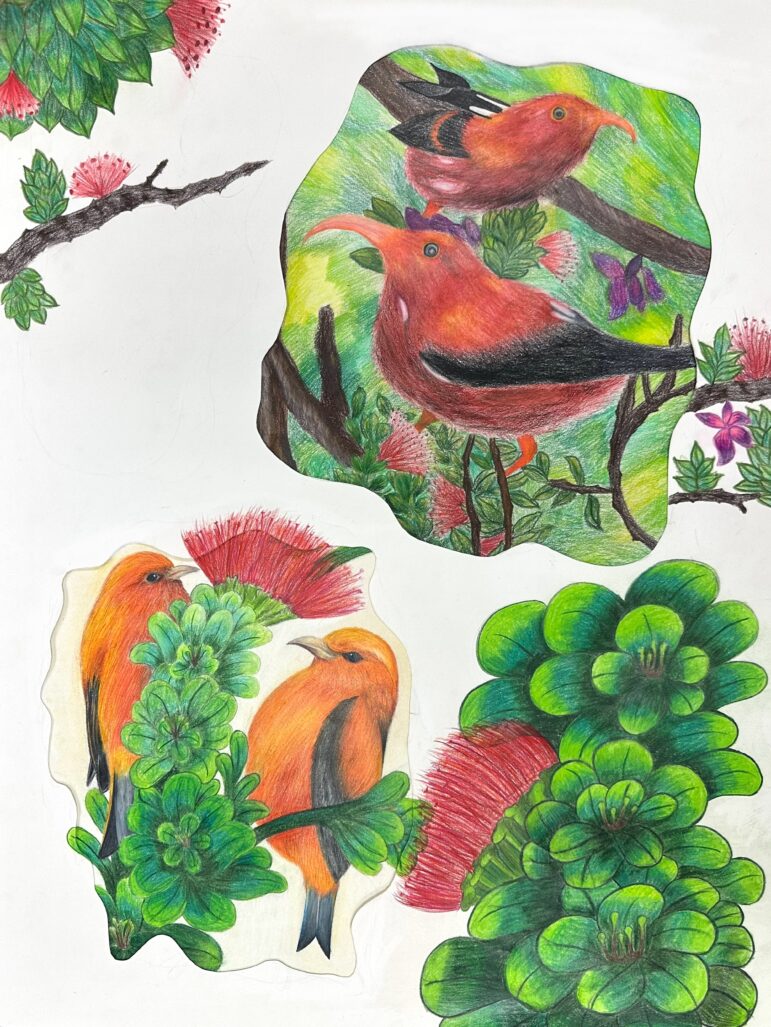
ARTISTS STATEMENT: We featured the Loggerhead Sea Turtle which is an endangered species because of bycatch, use of plastic by humans and poaching. We expressed our creativity by drawing the Loggerhead in Bikini Bottom from the SpongeBob Square Pants show.
ARTISTS STATEMENT: The population of Attwater’s prairie-chicken is declined dramatically in recent years. They can only be found in two Texas counties. There are several factors that contributed to this species’ decline: habitat loss, habitat fragmentation, overhunting and red imported fire ants. With so little of its home left, the Attwater’s Prairie-Chicken has come very close to extinction. Attwater Prairie Chicken National Wildlife Refuge was established to protect the critically endangered Attwater’s Prairie-Chicken, to keep a healthy ecosystem. This is why we chose this animal
ARTISTS STATEMENT: Hawaii ‘Akepa and I’iwi, beautiful, bright colored birds with black tipped wings, are endangered because of habitat loss and introduced avian diseases. They play a big role in pollinating many native plants and disperse seeds. In this art, the birds are fighting over the last few flowers left on the tree because all other flowers in that section of the forest are gone due to habitat loss. These lovely birds should be protected and saved, not only because they contribute to the overall health of the Hawaii ecosystem but also they are pleasing to look at and they can brighten up your day.
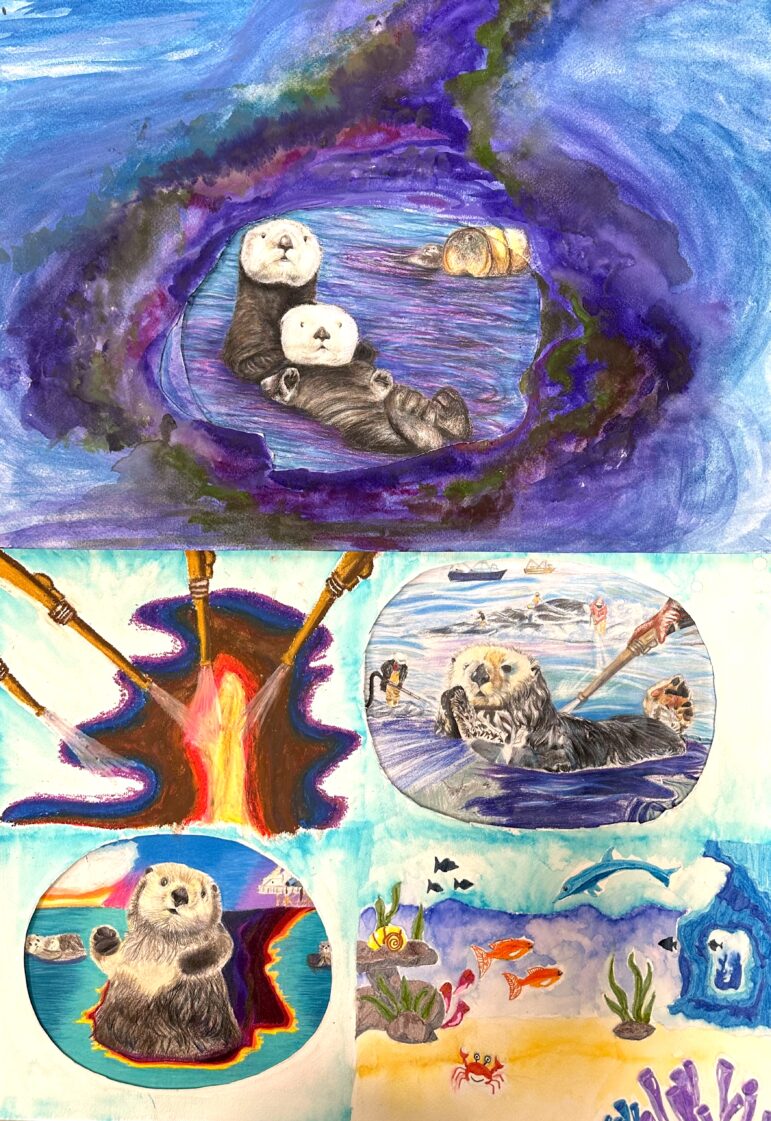
ARTISTS STATEMENT: Sea otters are beautiful animals and their brown furs are amazing, however, by the 1900s, sea otters had almost been extinct. One of the reasons they almost went extinct was because of the oil spills, caused by accidents involving tankers, barges, pipelines, refineries, etc. But they also occur from recreational boats and in marinas. We are in control of letting this happen, save the otters!
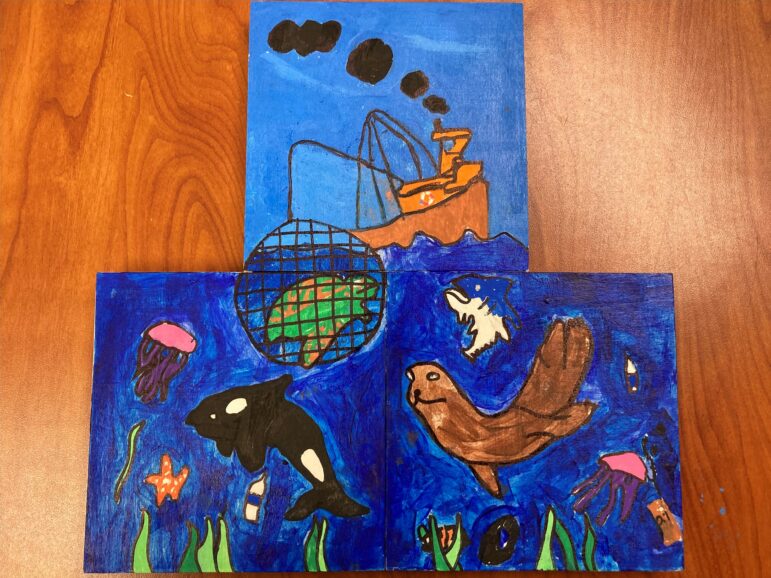
ARTISTS STATEMENT: The focus of our painting is the Leatherback Sea Turtle which is endangered mainly due to bycatch, poaching and pollution. We included trash in our painting because this is how many habitats look now due to overuse of plastic and fossil fuels.
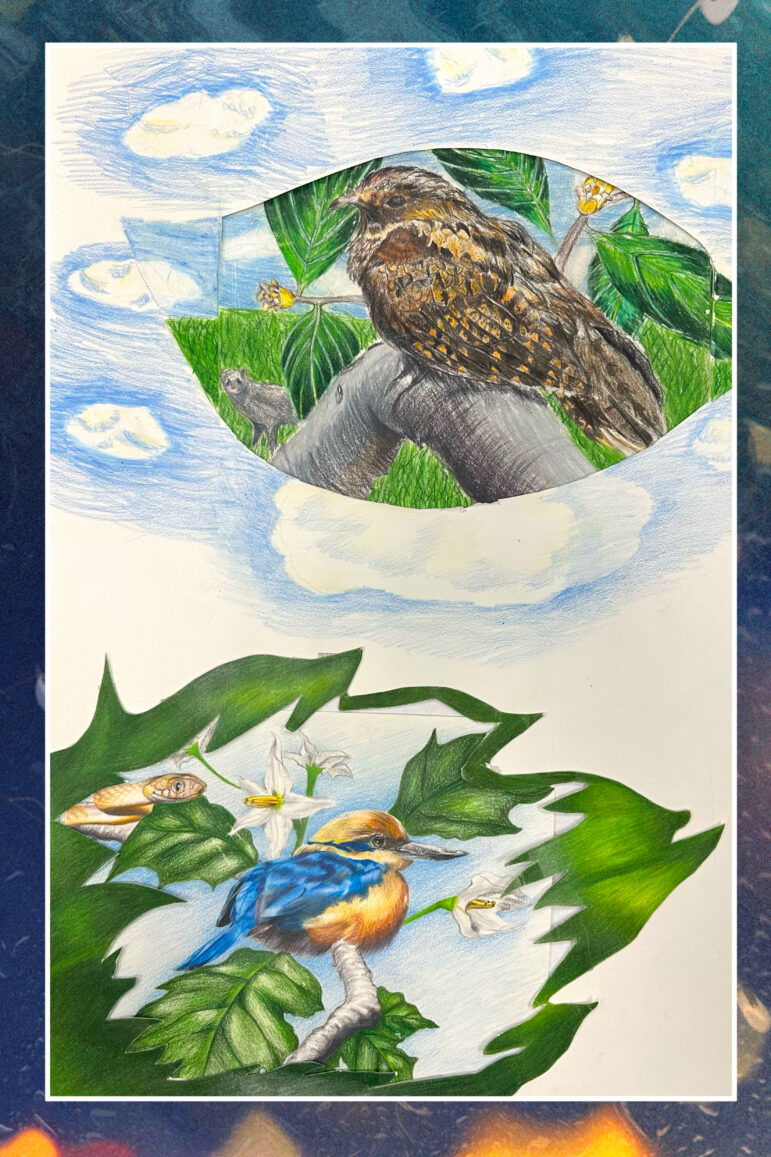
ARTISTS STATEMENT: We chose to draw two endangered bird species, the Puerto Rican Nightjar and the Guam Micronesian Kingfisher because they caught our eyes and we were curious about why they were endangered. We want others to know that these birds are endangered and need help.
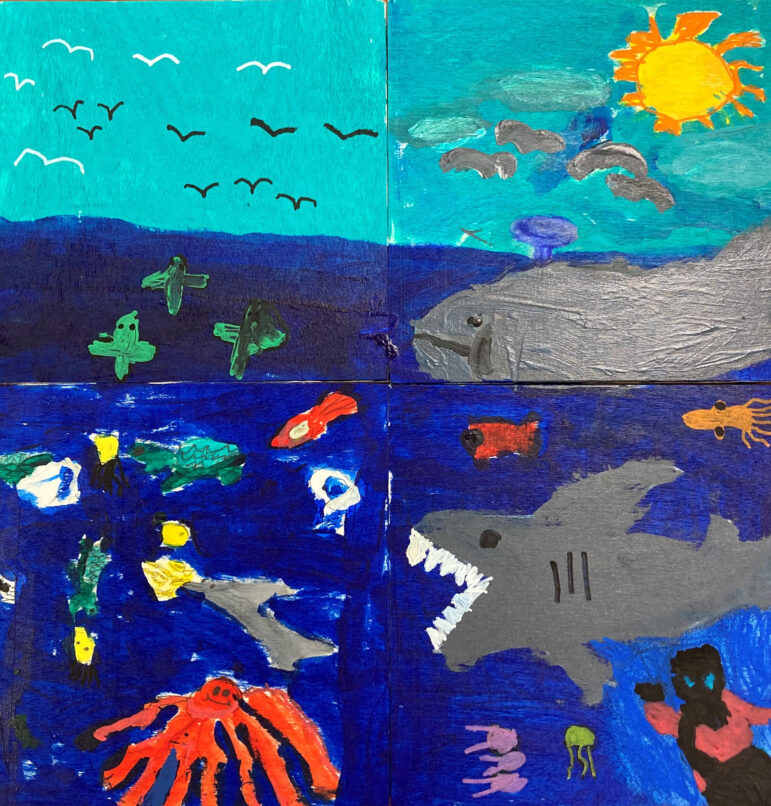
ARTISTS STATEMENT: The focus of our painting is a Shortfin Mako Shark which is one of the fastest sharks. It is an endangered species mainly because of overfishing. They are also hunted for their fins, jaws, leather, oil and meat. The entire Ocean ecosystem will be affected if these sharks are not protected.
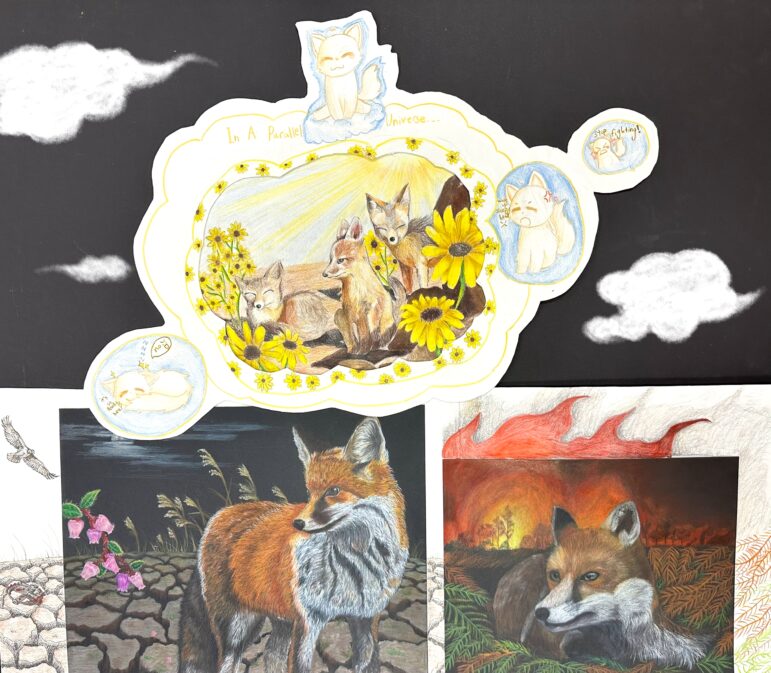
ARTISTS STATEMENT: There are only 40 Sierra Nevada Red Fox left in the world. We need to save them from danger.
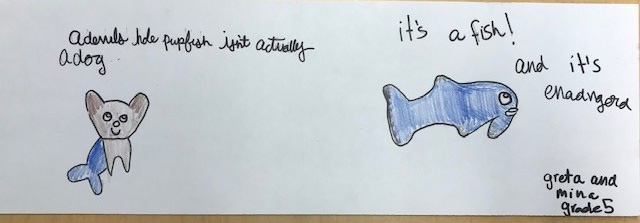
ARTISTS STATEMENT: Through these comic strips, we hope to convey that these beautiful species are endangered. We used humor, such as play on words, to add some levity to this otherwise unfortunate subject of endangered species. We hope our comics bring attention to these species that reside in the U.S. and encourage people to continue working to preserve the diversity of plant and animal species that call the United States home.
